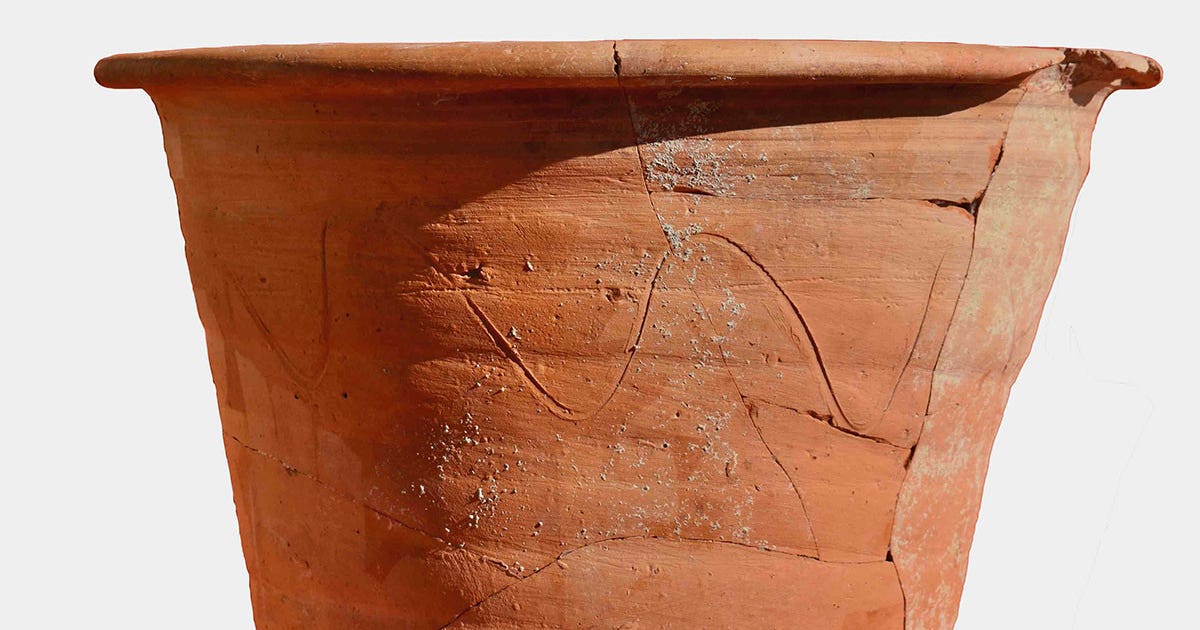
This 5th century chamber pot was found in a Roman villa at Gerace, Sicily.
Roger WilsonIt can hard to sniff out the uses of pottery from bygone eras. For example, researchers have uncovered conical ceramic pots from ancient Rome. What were they used for? Food storage? A new study found that at least some of them may have been the porta-potties of their time.
A team led by archaeologists from the University of Cambridge “analyzed crusty material formed on the inside surface of a ceramic pot dating to the fifth century from a Roman villa site in Sicily.” That crusty material included evidence the pot once held human feces.
The researchers used microscopy to identify whipworm eggs in the pot. Whipworms are intestinal parasites that like to set up shop in the human gut. The name comes from the worm’s resemblance to a whip.
Whipworm eggs catch a ride out into the world by mixing in with human excrement. In the case of the Roman artifact, the eggs were preserved in mineral layers in the pot.
Ancient whipworm eggs might not make most people shout “Yippee!,” but the discovery was cause for celebration for the archaeologists. “It was incredibly exciting to find the eggs of these parasitic worms 1,500 years after they’d been deposited,” said Tianyi Wang, a co-author of a study on the chamber pot published last week in the Journal of Archaeological Science: Reports.
The same method could be used to determine if other pots were used as toilet accessories. The researchers suspect the 12.5-inch-wide (31.8-centimeter) pot was probably used with a seat-like structure over it.
Toilet habits can tell us a lot about the diets, ailments and everyday life of ancient cultures. “This pot came from the baths complex of a Roman villa. It seems likely that those visiting the baths would have used this chamber pot when they wanted to go to the toilet, as the baths lacked a built latrine of its own,” said parasites expert Piers Mitchell, a co-author of the paper. “Clearly, convenience was important to them.”

